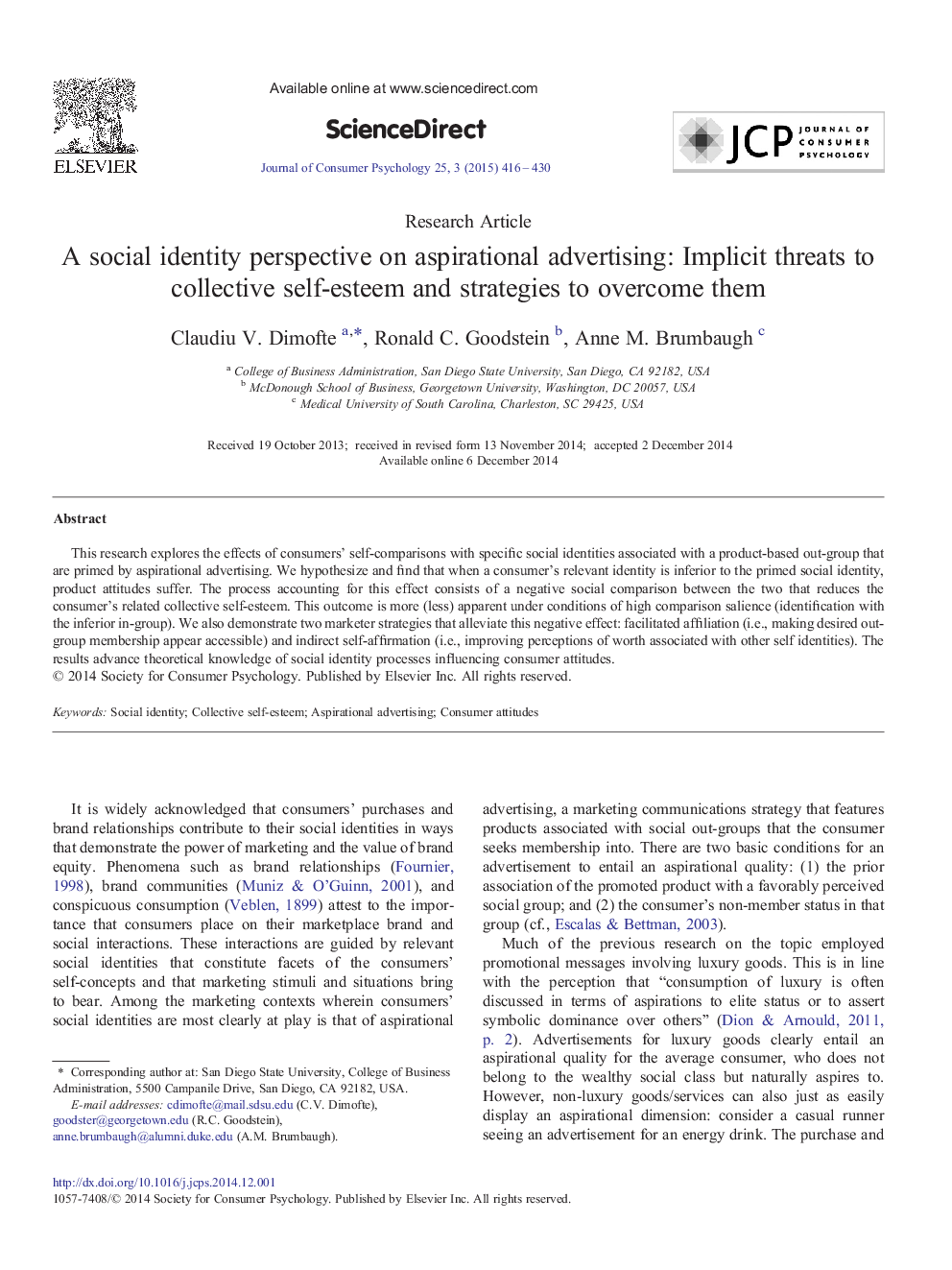| Article ID | Journal | Published Year | Pages | File Type |
|---|---|---|---|---|
| 882133 | Journal of Consumer Psychology | 2015 | 15 Pages |
This research explores the effects of consumers' self-comparisons with specific social identities associated with a product-based out-group that are primed by aspirational advertising. We hypothesize and find that when a consumer's relevant identity is inferior to the primed social identity, product attitudes suffer. The process accounting for this effect consists of a negative social comparison between the two that reduces the consumer's related collective self-esteem. This outcome is more (less) apparent under conditions of high comparison salience (identification with the inferior in-group). We also demonstrate two marketer strategies that alleviate this negative effect: facilitated affiliation (i.e., making desired out-group membership appear accessible) and indirect self-affirmation (i.e., improving perceptions of worth associated with other self identities). The results advance theoretical knowledge of social identity processes influencing consumer attitudes.
